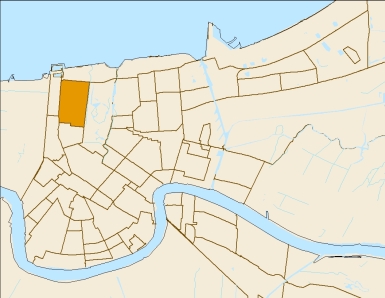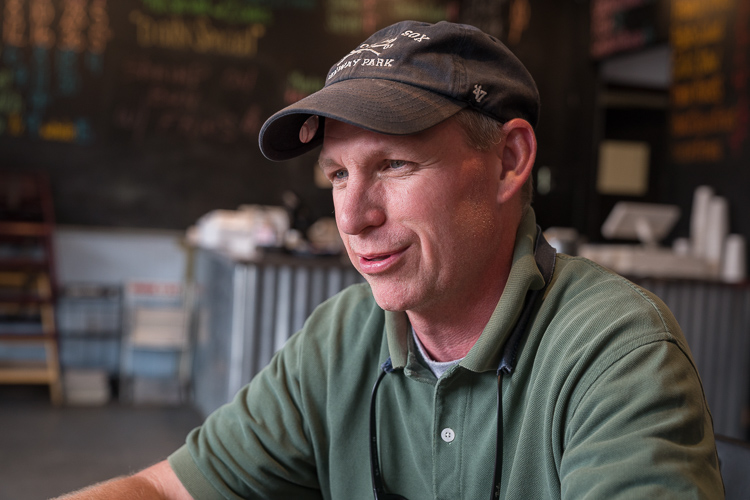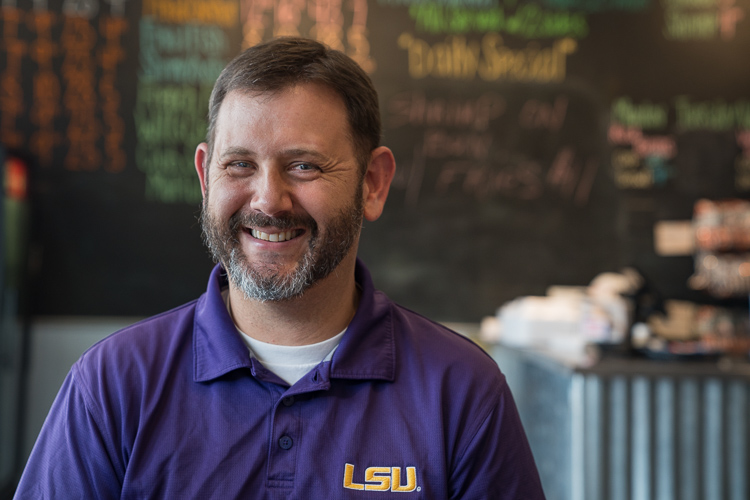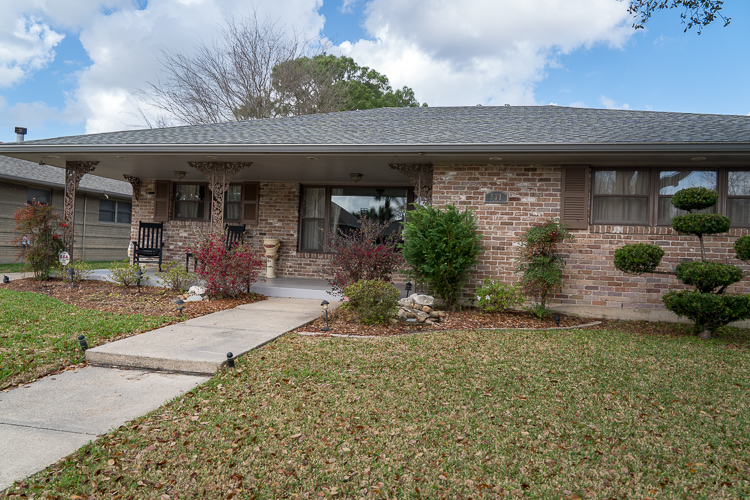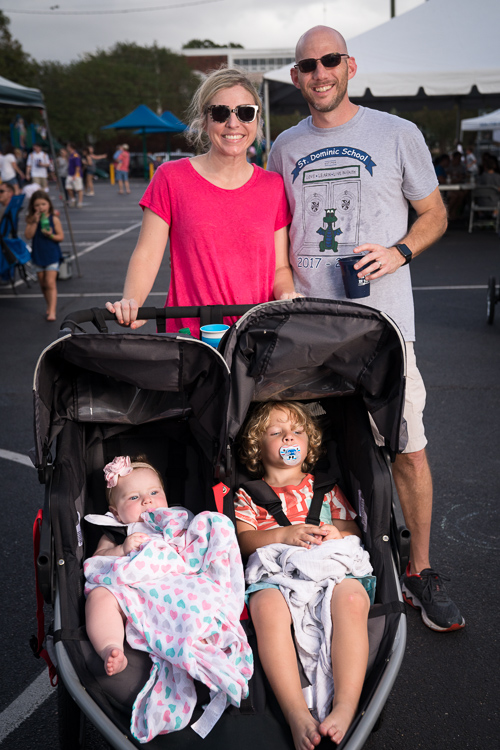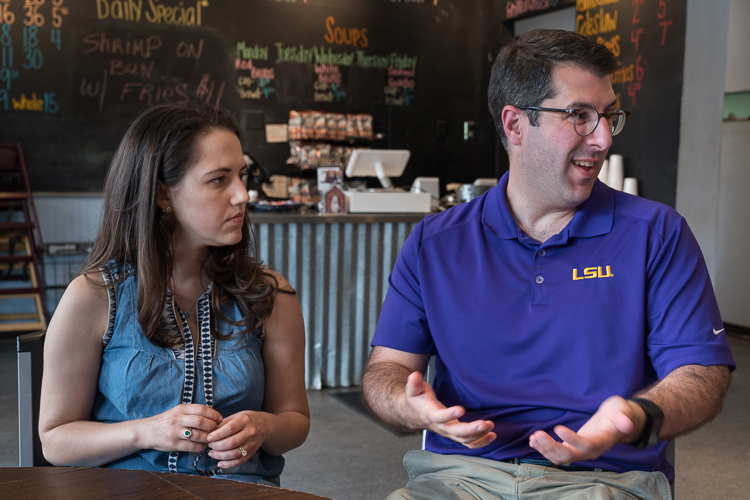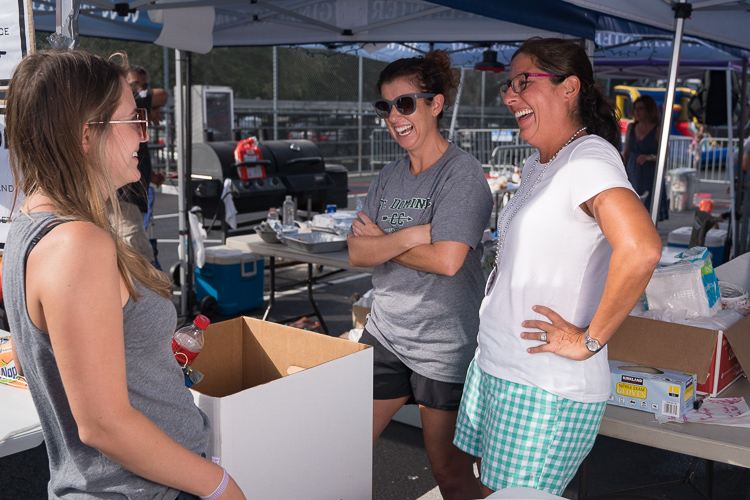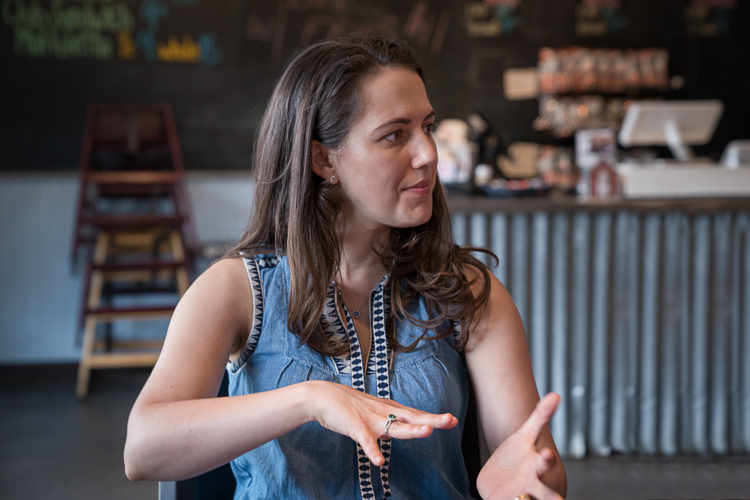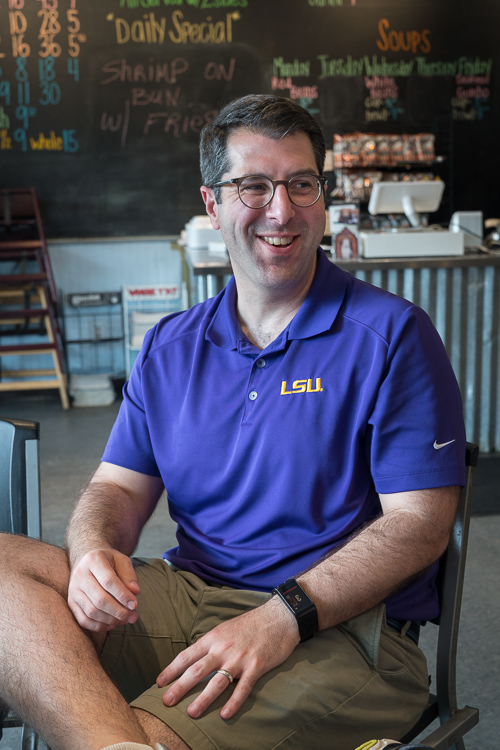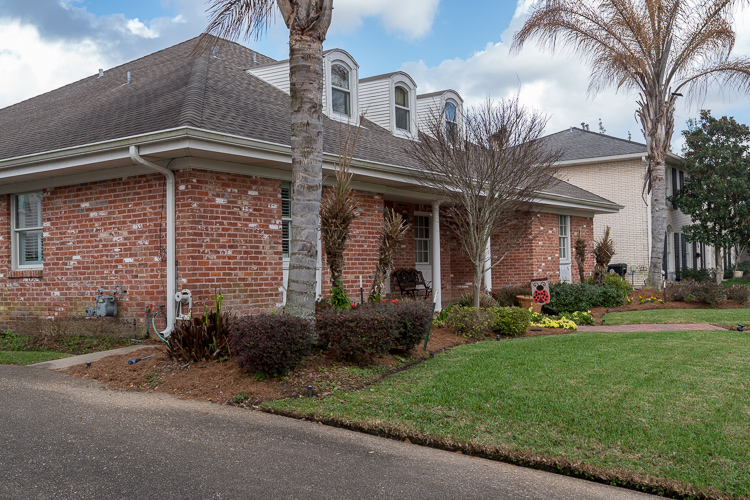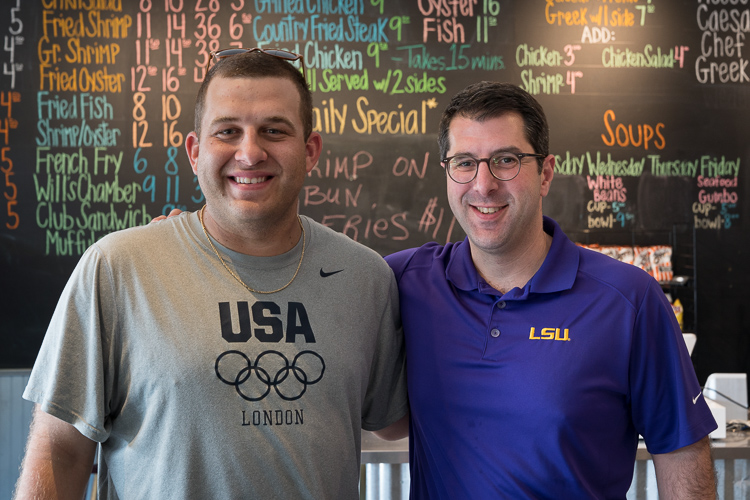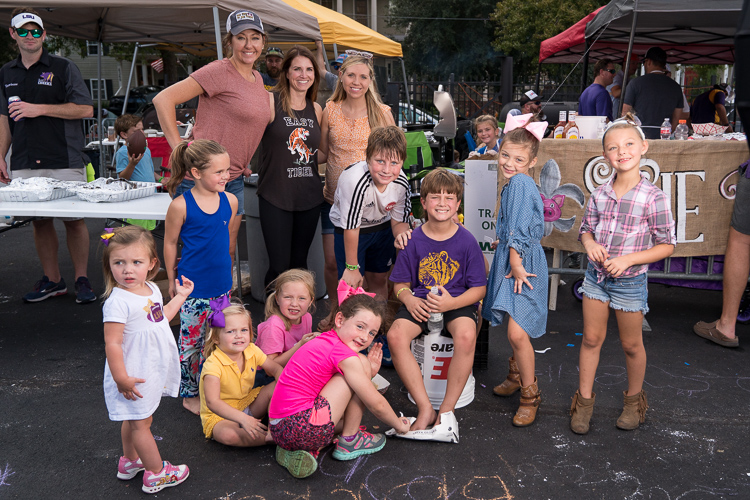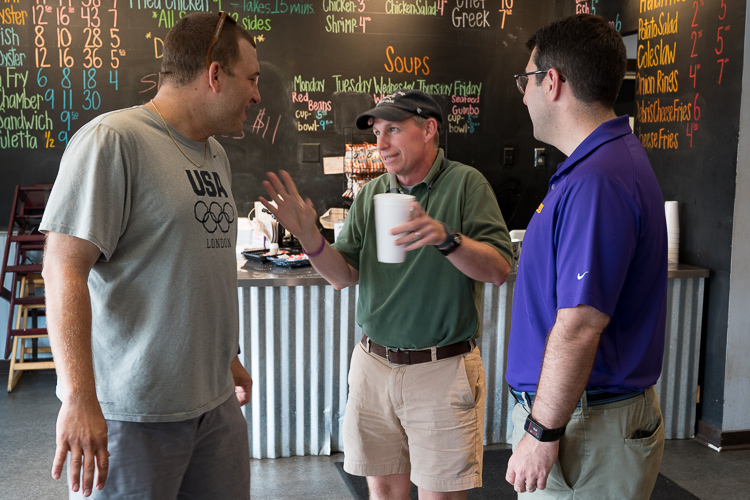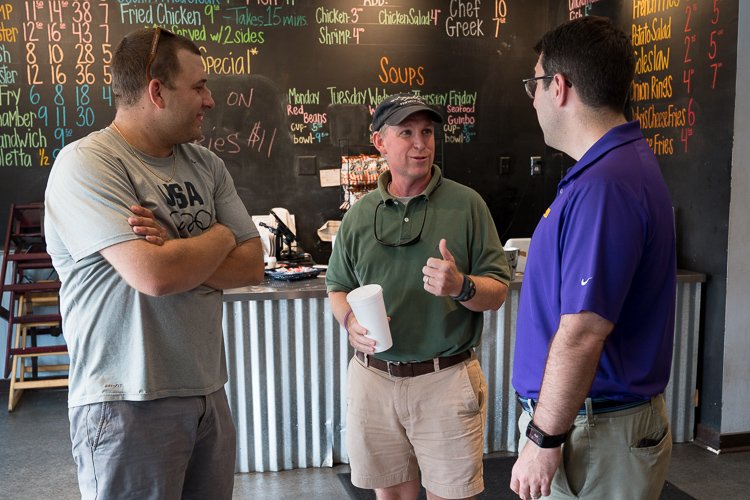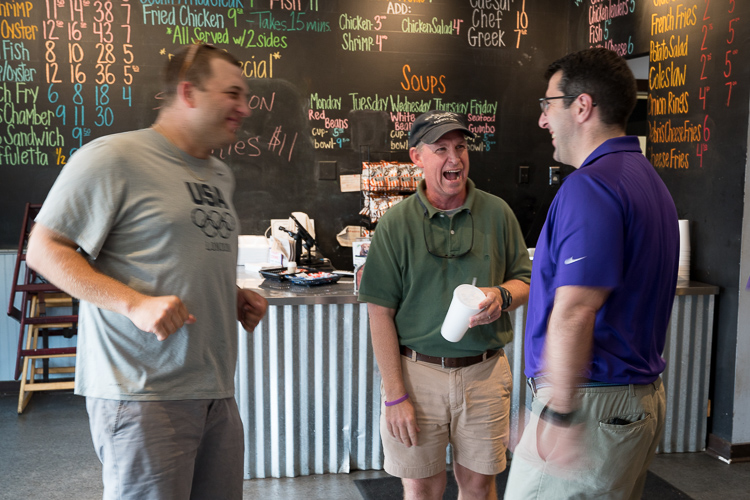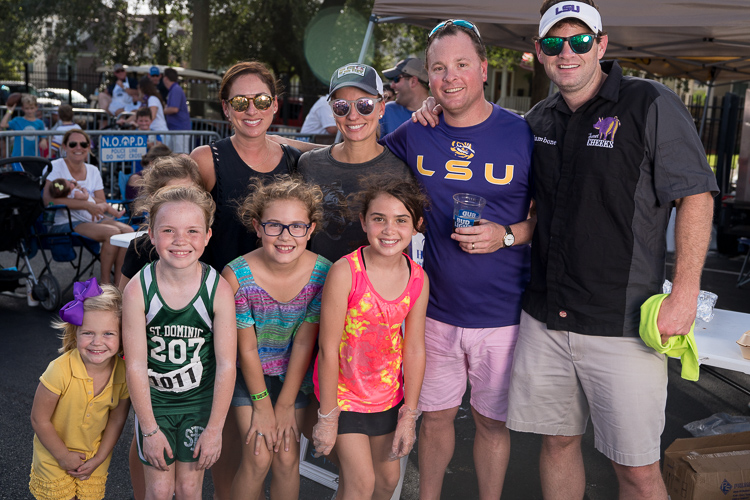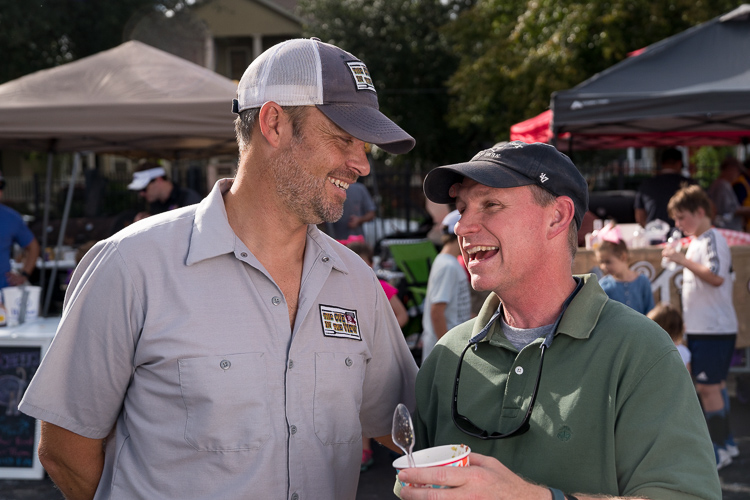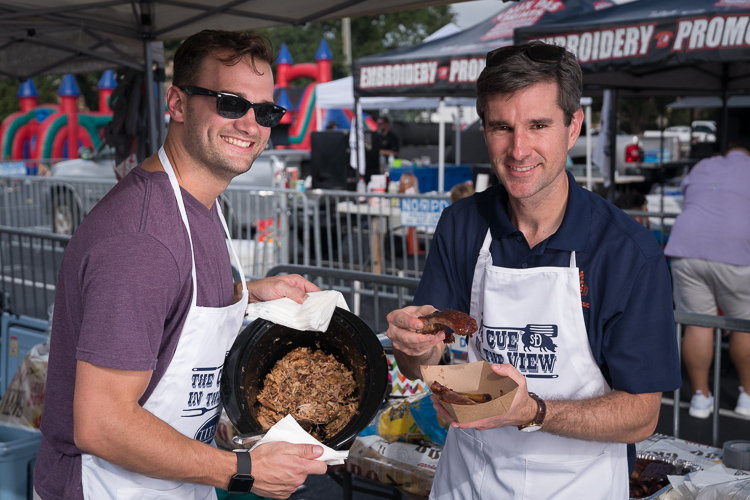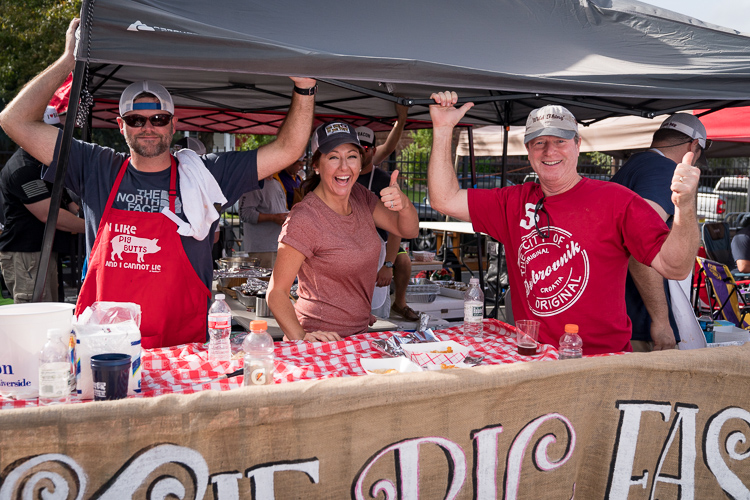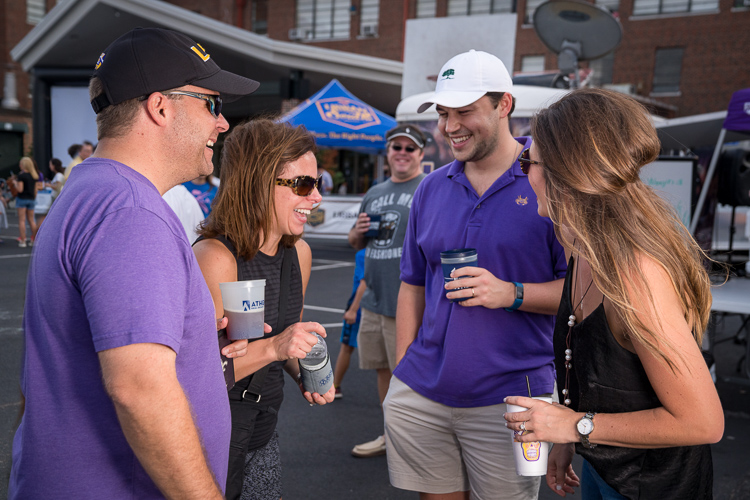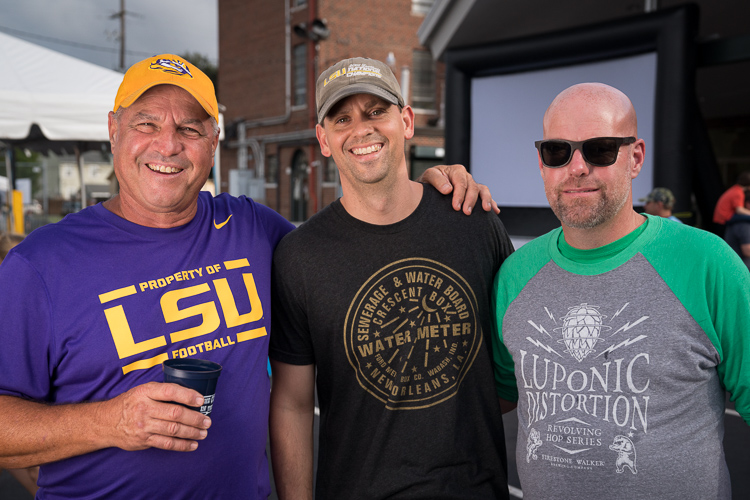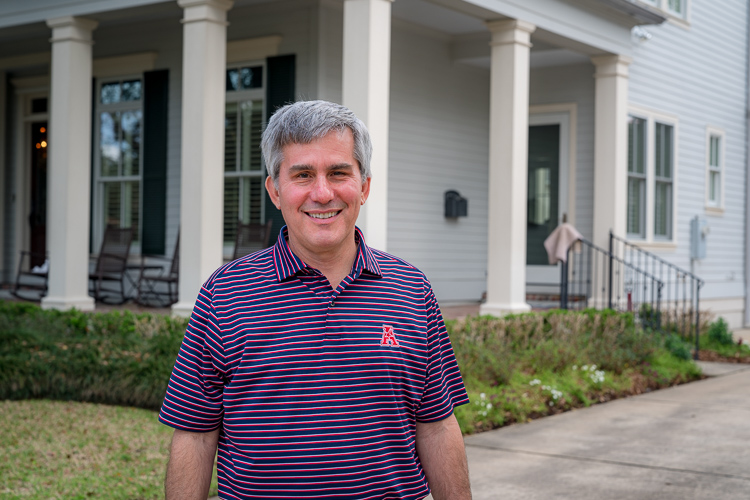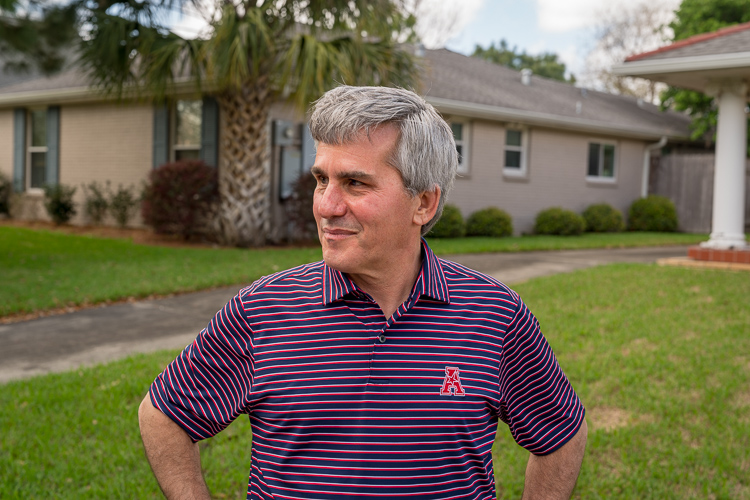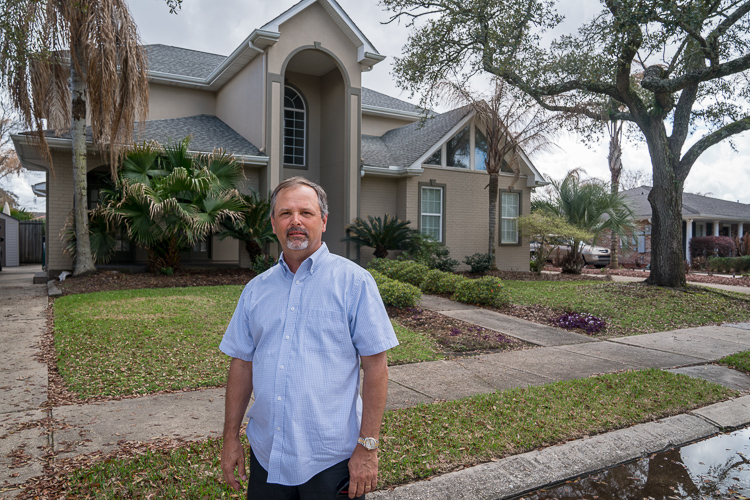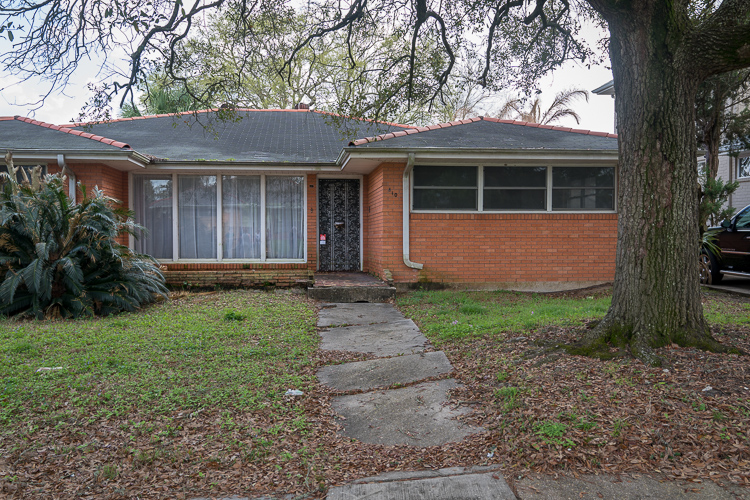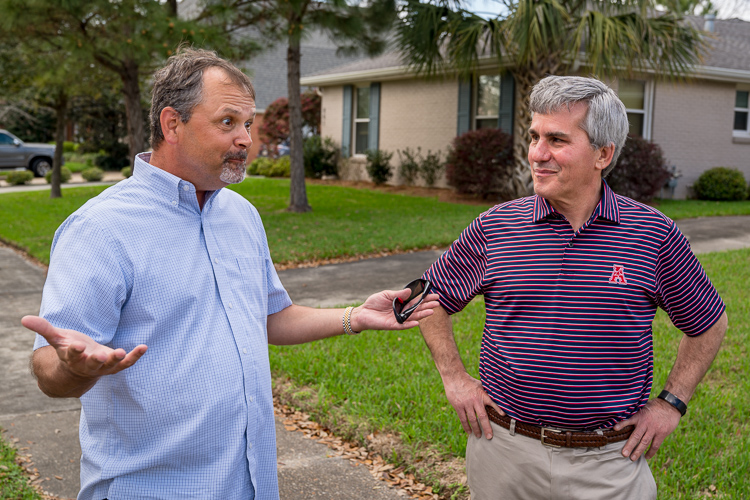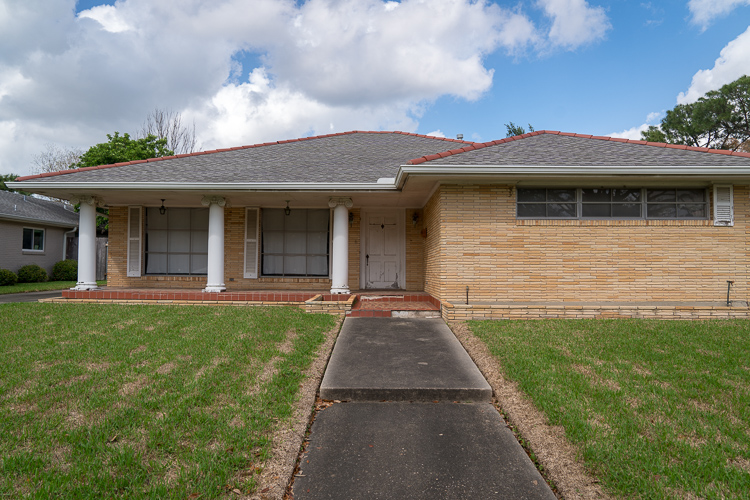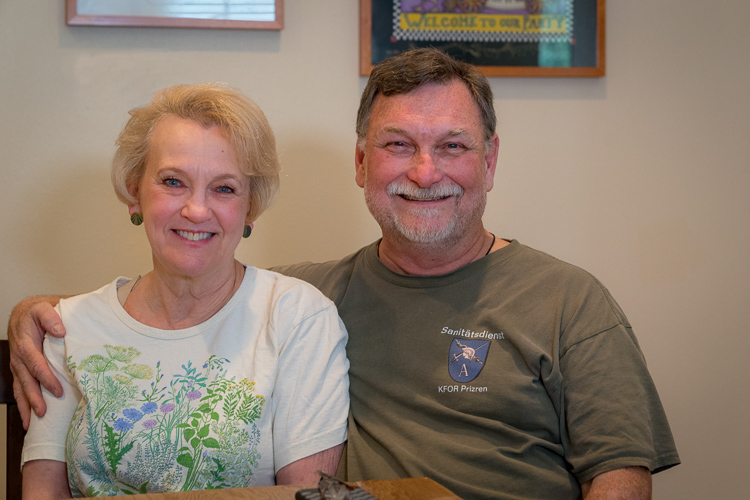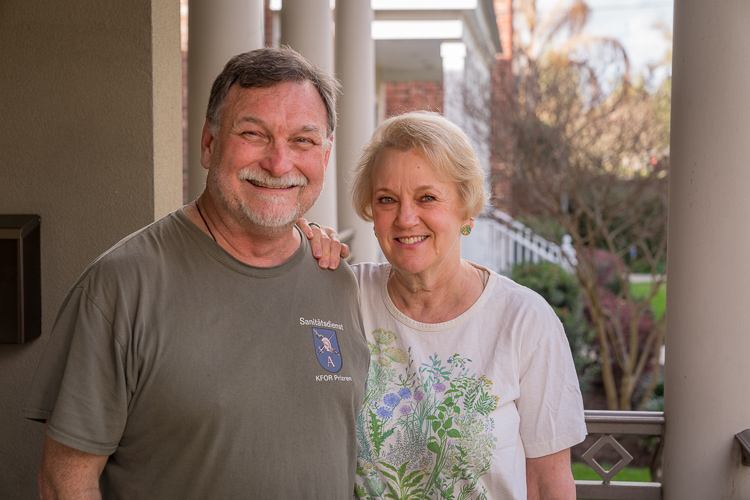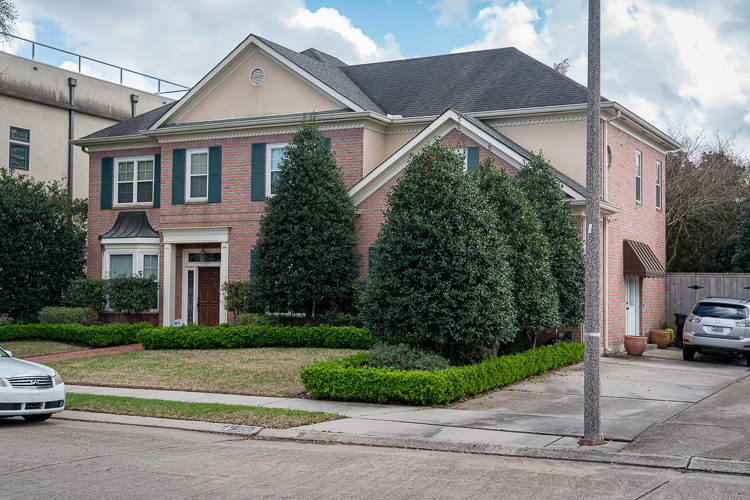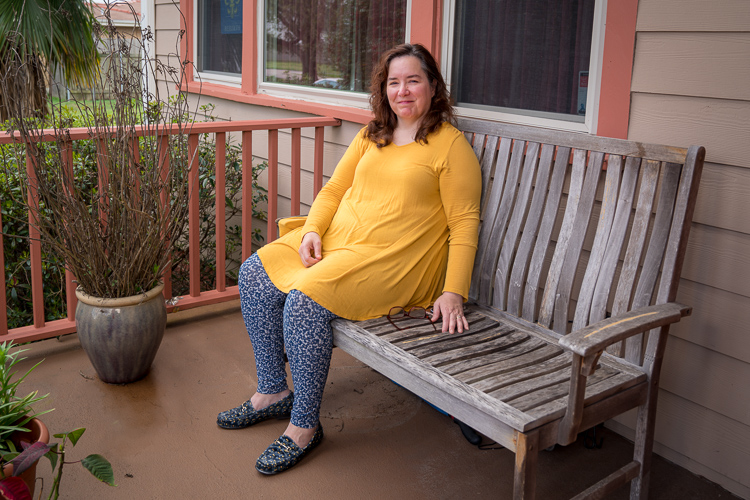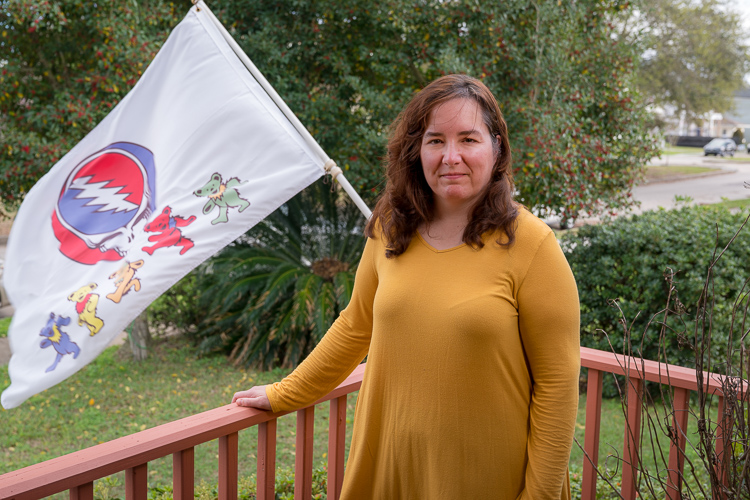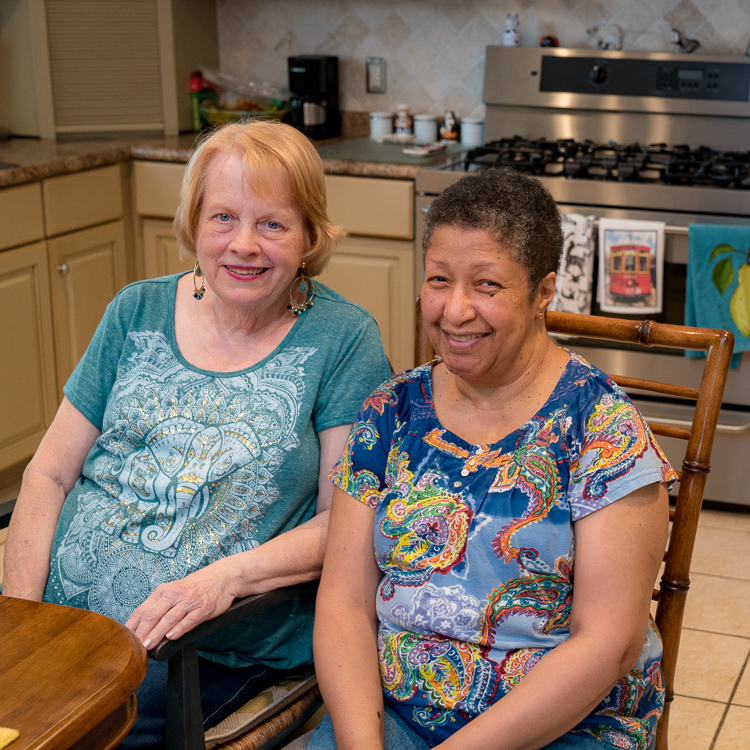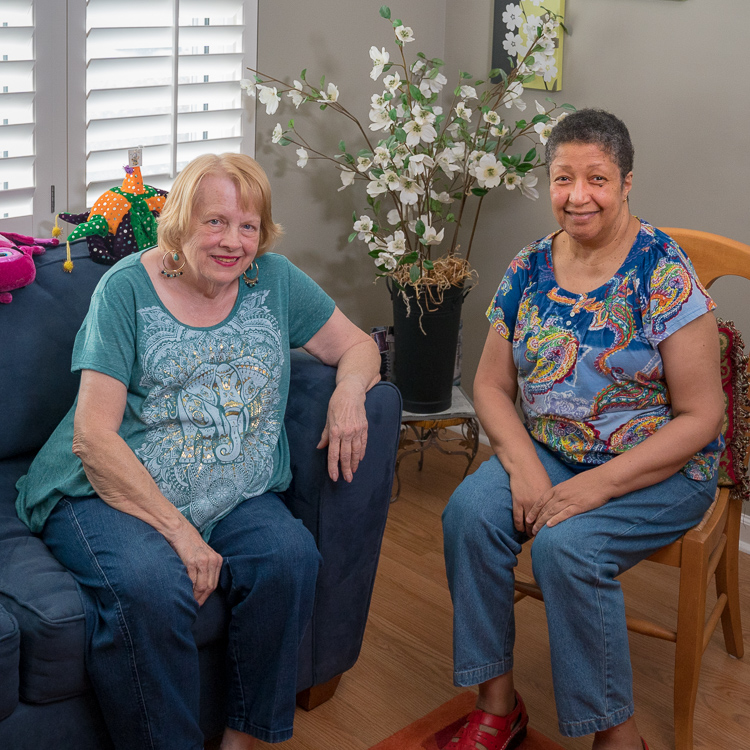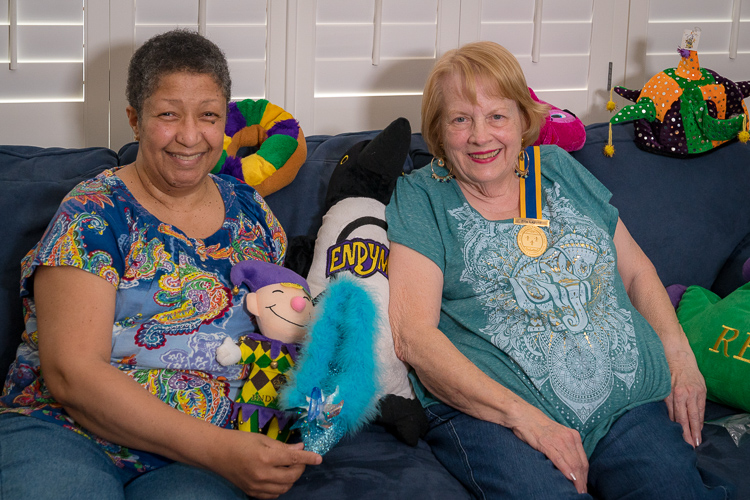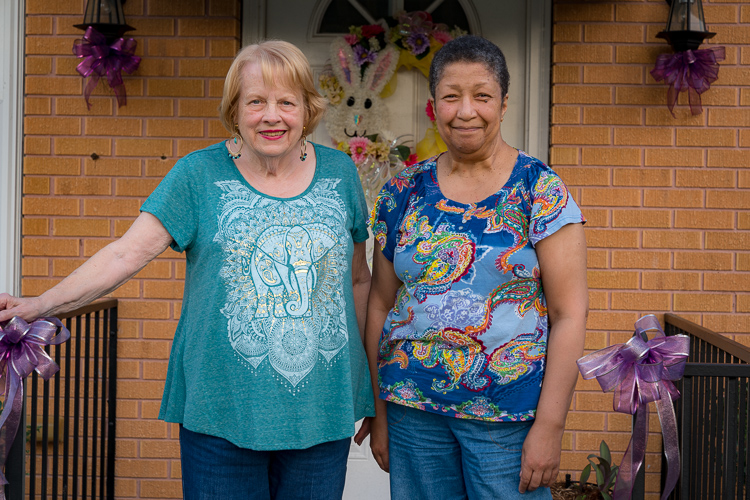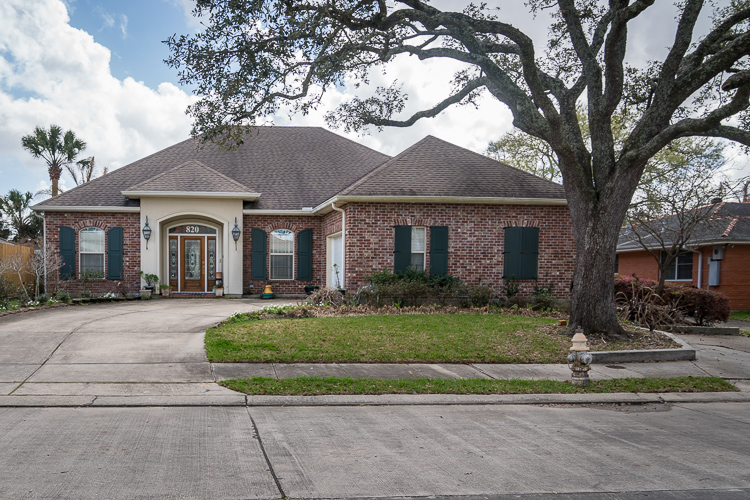Jeb: Brian is currently the president of the crime prevention district. He’s a past neighborhood president as well.
Brian: By the time we moved back into this neighborhood [after the storm], we were early 30s, professionals just making enough money to buy into Lakeview, and pre-Katrina your options for Lakeview were, you could buy a vacant lot for $225,000, $250,000 or you could buy a lot with a very tiny little house on it for $300,000. [My wife] Jan’s parents were that middle group, in their 50s. And there was a huge amount of 75, 65, 85-year-old people in Lakeview pre-Katrina. The house flooded. We ended up tearing down. It took us four or five years before we finally got back.
I told my wife, I said, “if we’re going to live here, we’re not living on the North Shore, we’re not going to commute from Jefferson Parish; we’re going to live in Orleans [Parish].” And as an architect my business is basically centered around the city. So, when we moved back I wanted us to be in Lakeview, I wanted us to be in Orleans Parish. So, it was interesting, I guess, my difference from you [Jeb] is, your family has a lot of roots back in this area. Whereas Jan’s parents were the first of her family to move in. For me, it was more of, “okay, this is where I live. Let’s get ourselves incorporated into the neighborhood.” And then I started to realize what you were talking about, and what Jan had told me about. It was families. It was not just one family, two families, three families. People that cared deeply about living in New Orleans.
Jeb: Well my grandparents had lived in Gentilly, not too far from the racetrack on Onzaga Street, off of Gentilly Boulevard. And then sometime when my dad was in college, they built one of these little ranch-style houses off of 22nd Street and my mom was from Baton Rouge, so when she married my dad, my grandparents were here but they bought a house on 14th Street, and I grew up in that house till I was 7 or 8 years old and then we moved to Argonne [Boulevard].
Brian: You and I, when we moved in, we were the young group. But now we’re not the young group anymore. What’s interesting is, I think it’s our age group that really focused on the push to replace, with the guidance of some of the older people like Freddy Yoder, and your dad.
Jeb: Absolutely. And we had a few people that stuck around, that were maybe in-between us and that older group.
Brian: That middle-aged, they stayed, and they were the leadership. And then the younger people were us, coming in, in our 30s.
Jeb: They were in their early 60s and a lot of them debated.
Brian: And it’s absolutely the leadership in the neighborhood is the reason this neighborhood came back. The people your dad’s age that were not in their 70s when it happened—
Jeb: Well, give credit to the schools and the faith-based communities too.
Brian: We lived next door to my wife’s family. That’s not something uncommon in this area.
Jeb: My dad is a block away, my brother is 10 blocks away, my father-in-law is eight blocks away, my brother-in-laws are five and six—
Brian: There were so many families in this neighborhood that generation after generation, I mean, you can easily have 3+ generations of the same family in this neighborhood. It is just that camaraderie, to this day I feel like we’re in a better situation as a neighborhood than a lot of others because we are so well-organized. And the Al Petrie’s of the world and Freddy Yoder’s’ and Jeb and those guys, they’re starting to take a backseat, but guys like me who came in two years after, who weren’t so burnt out were able to pick up and I basically just lean on the exact same structure that was built before me. |
